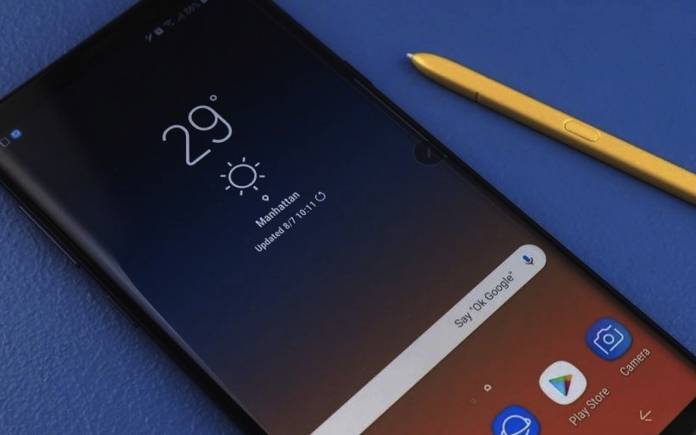
It’s not the most definitive data source but Ookla, which runs the popular Speedtest service that you run when you want to see how fast your connection is, released a report on the most popular smartphones in the U.S. This is based on the devices that people are using when they use their service so it’s not as extensive as a data pool as you’d like to have. But according to their figures, the most popular Android smartphone right now is the Galaxy Note 9.
PC Mag, a sibling company of Ookla, shared the results of the analysis of the latter’s data which showed that the Galaxy Note 9 is more popular in the U.S. right now, particularly in the Southwest and West Coast. What may be surprising is that the Galaxy S8 is still a very popular device in the northern and eastern states. But if you remove the Android filter, the iPhone X is still the most popular device, at least in the U.S.
Apple and Samsung are the two most dominant brands and they own 76.3% of the market with the latter having a 28% market share. These are the latest figures from Statista. LG is the brand after Samsung but they just have 8.8% market share. You would expect that the newer Galaxy S10 devices would be popular, but it will probably take some time for them to catch up to the Galaxy S8, which apparently a lot still prefer over the newer devices.
To reach this data, Ookla and PCMag analyzed results from around one million Android devices that used the Speedtest app for the whole month of October 2019. Their theory as to why the Galaxy Note 9 is that popular despite being one of the most expensive devices is because of the Galaxy Note 7. Users were forced to surrender their Note 7 because of battery issues but they passed on the Note 8 first to see if Samsung will be able to fix their issues first and so now you have your Note 9 popularity.
As to whether the Galaxy S10 and Galaxy Note 10 will become more popular over time, we’ll probably have to wait until next year’s data analysis from Ookla. Who knows we might even see other brands become popular across the U.S., although right now, nothing seems to be threatening the duopoly of Apple and Samsung.









